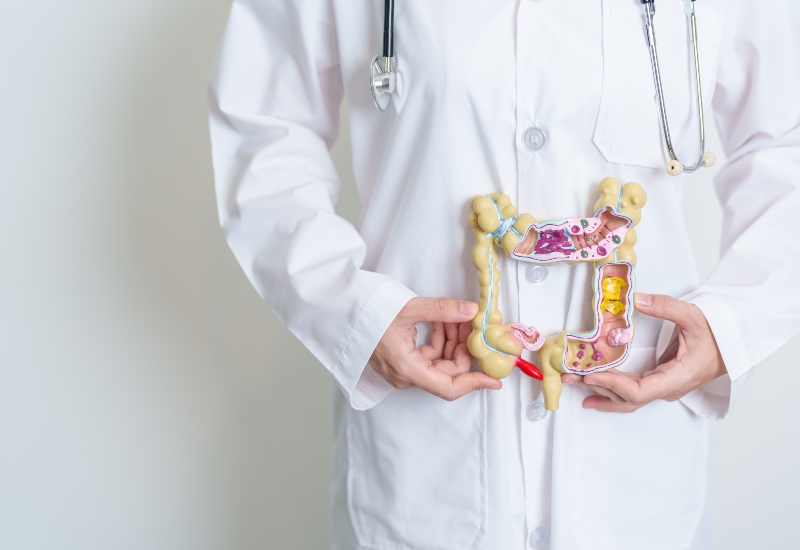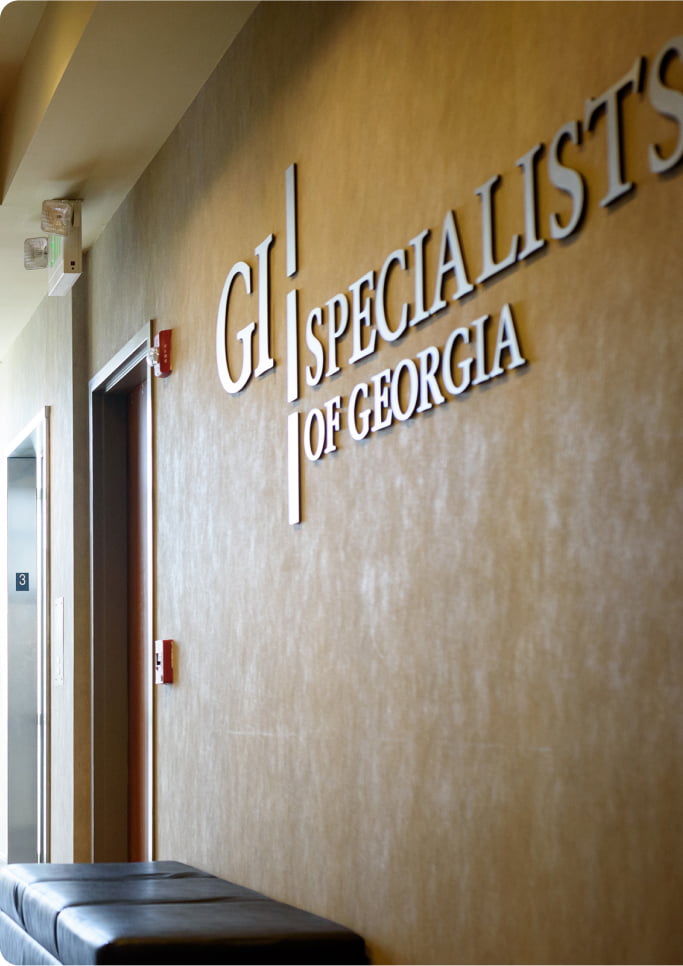Colitis Treatment in Atlanta, GA
What Is Colitis?

Symptoms and Causes of Colitis
Inflammation in your colon can affect the last part of digestion. If you have any signs of colitis, it’s important to contact GI Specialists of Georgia to get to the root cause. Some of the most common symptoms of colitis include:
- Urgent and frequent loose stools
- Distended stomach feeling
- Experiencing abdominal discomfort
- Mucus or blood presence in stool
- Weight loss
- Vomiting
- A decrease in appetite
What Causes Colitis?
There are many different causes of colitis. The most common types of colitis include:
- Infectious Colitis – Infectious colitis results from a viral, parasitic, or bacterial affliction. Common culprits include Salmonella and E. coli. It's usually contracted by consuming infected food or water.
- Pseudomembranous Colitis – Pseudomembranous colitis typically originates from a specific bacterium known as C. diff (clostridioides difficile). This type of colitis often follows antibiotic use, leading to an overgrowth of the already present C. diff bacteria.
- Allergic Colitis – Allergic colitis impacts breastfed babies and usually stems from food intolerances, such as lactose intolerance or soy allergy.
- Ischemic Colitis – Ischemic colitis occurs as a consequence of intestinal ischemic syndrome, a condition in which the intestines aren't adequately supplied with blood. Ischemia typically results from a blockage in the blood vessels, such as a blood clot, aneurysm, or atherosclerosis.
- Inflammatory Bowel Diseases (IBD) – Inflammatory bowel diseases include Crohn’s disease and ulcerative colitis with persistent inflammation in your colon. Their direct cause isn't known, but these conditions are believed to be a type of autoimmune disease.
- Radiation Colitis – Radiation colitis can result from radiation therapy used for treating certain cancers. It’s usually short-term, but in some cases, individuals develop ongoing symptoms.
- Diversion Colitis – Diversion colitis can appear in those who've undergone a colostomy. It occurs in the segment of the colon no longer in use.
How is Colitis Treated at GI Specialists of Georgia?
Colitis treatment depends on the type and root cause of the issue. Some of the most common colitis treatments include:
- Medications – We can prescribe antibiotics to treat infections, corticosteroids to tackle inflammation, immune modifiers to reduce your autoimmune reactions, and aminosalicylates to handle IBD.
- Dietary Changes – Acute, temporary colitis patients might find relief from a low-fiber, easy-to-digest diet. Patients dealing with chronic colitis would potentially benefit from a diet plan specifically tailored to their needs, avoiding foods that provoke flare-ups and incorporating certain foods or supplements to ensure proper nutrition.
- Surgical Methods – For individuals suffering from certain colitis types, including necrotizing enterocolitis, ischemic colitis, and IBD, surgery may be necessary to address complications. Although surgery doesn't always provide a cure, it can be utilized to halt bleeding, mend a perforation, or clear a blockage.
Why Choose GI Specialists of Georgia?
GI Specialists of Georgia is dedicated to caring for your gastrointestinal diseases and issues. Our leading gastrointestinal and hepatology services offer innovative solutions and customized treatment plants. Our team of medical experts works with you to ensure we find the best treatment for your gastrointestinal and hepatology needs. We understand digestive problems can be painful and challenging, so you can trust us to always be in your corner, putting your medical needs first.
Schedule A Colitis Appointment Today
Schedule an Appointment with Our Atlanta-Area Gastroenterologists
"*" indicates required fields

